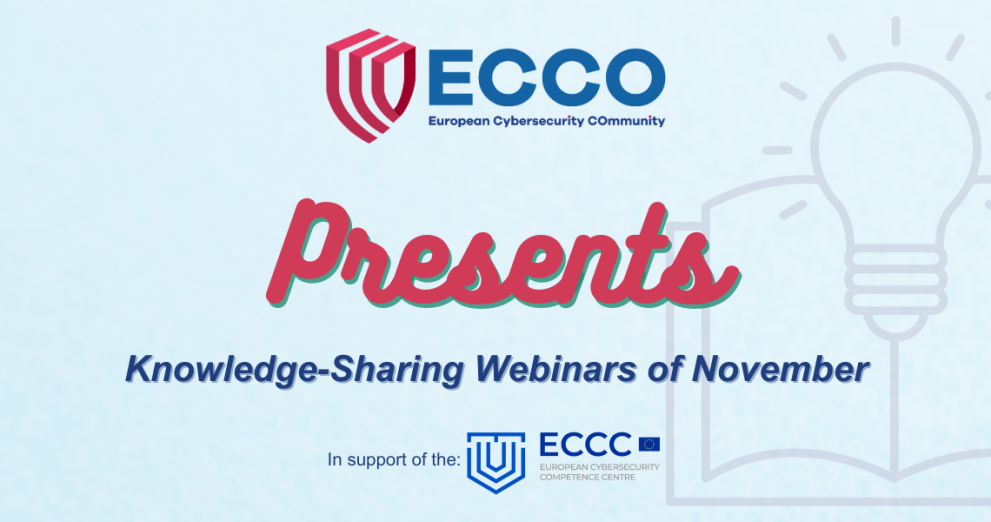Tecnalia and OpenNebula Systems have been invited to join the European Cybersecurity Community (ECCO), led by the European Cyber Security Organization. ECCO comprises a consortium of 13 cybersecurity stakeholders from both the public and private sectors. Its mission is to enhance cooperation between cybersecurity projects across Europe, strengthen Europe’s leadership in cybersecurity, support network and information system resilience and reliability, and foster the global competitiveness and high standards of the EU’s cybersecurity industry. ECCO also aims to develop skills and competencies for academic and professional cybersecurity education in Europe.
As part of ECCO initiatives, the European Cybersecurity Competence Centre has launched the formation of working groups with experts from various fields to establish a foundational community at the EU level. OpenNebula Systems is deeply involved in the Roadmapping Working Group. A key objective of this group is to support National Competence Centres’ endeavors in improving research, development, and innovation expertise, thereby advancing the position of the EU cybersecurity community.
The Roadmapping Working Group focuses on sharing knowledge through webinars on numerous cybersecurity-related topics, such as digital twins, trustworthy AI, data spaces and data sovereignty, distributed computing, etc.
These sessions and webinars covered crucial topics, including aligning educational curricula with market needs, tackling cloud and edge security challenges, enhancing supply chain resilience, empowering users with self-sovereign identity, advancing supply chain cybersecurity in space, and addressing regulatory initiatives of supply chain security.
ECCO Webinar and EMERALD: Security Challenges through the cloud-edge continuum
Are you interested in security challenges through the cloud-edge continuum?
This webinar, organised by the ECCO Community Group on Roadmapping last November, addressed the key cybersecurity challenges within the European Computing Continuum, as outlined in Mario Draghi’s recent report on European competitiveness. The report highlighted critical issues such as supply chain compromises, privacy loss, the rise of AI-driven cyber threats, dependence on external technologies, and hybrid threats that combine cyber and physical risks. These challenges underscored the need for a coordinated effort between industry and research to strengthen the resilience and security of Europe’s digital infrastructure. The webinar explored topics like Confidential Computing, Cloud Security Certification, and threat monitoring, laying the groundwork for enhancing the security of the European Computing Continuum.
- Session 1: Full Stack Confidential Computing – Jordi Guijarro (OpenNebula Systems) and Joerg Roedel (SUSE)
This session explored the critical challenges of implementing confidential computing for enhanced security across the cloud-edge continuum. As data moves through diverse and distributed environments, ensuring robust protection becomes complex, requiring the integration of hardware-based security solutions across cloud, on-premises, and edge nodes with varying levels of trust. The session also addressed the performance trade-offs of encrypting data in use, especially in resource-constrained edge environments, and discussed solutions to maintain low-latency and efficiency in secure data processing.
- Session 2: Cloud Security Certification [EU Projects: EMERALD/COBALT] Juncal Alonso (Tecnalia) and Jesús Luna (Bosch)
This session explored the significance of cloud security certification and the distinct challenges it presents within the cloud-edge continuum. As organizations increasingly deploy applications across both cloud and edge environments, maintaining consistent, certified security standards across diverse platforms and at different levels (platform, software, application level) becomes both critical and complex. We discussed how cloud security certifications foster trust and compliance, and address the specific challenges of achieving automatic certification practices with the dynamic, distributed nature of Computing Continuum, where variations in security capabilities and resources create unique hurdles for standardized protection. EMERALD and COBALT HE projects, main founders of the European Cluster for Cybersecurity Certification will present their perspective on the future challenges on Cloud Continuum certification and how to automatize current manual practices. .
- Session 3 Threat / Anomaly Monitoring – Toni de la Fuente (Prowler.com)
This session highlighted the significance of cloud security assessments focused on threat hunting and their role in safeguarding the cloud-edge continuum. As data and applications move fluidly between cloud and edge environments, proactive threat detection becomes essential for maintaining security across distributed architectures. The session explored how threat-hunting assessments help identify vulnerabilities before they can be exploited, and it discussed the specific challenges in applying these assessments across diverse environments where varying security capabilities, real-time data flows, and resource constraints at the edge require adaptable and sophisticated detection methods.
We invite you to read the full presentation:
This participation has been made possible by the EMERALD project, which is funded through the European Union’s Horizon Europe research and innovation programme under grant agreement No 101120688.

